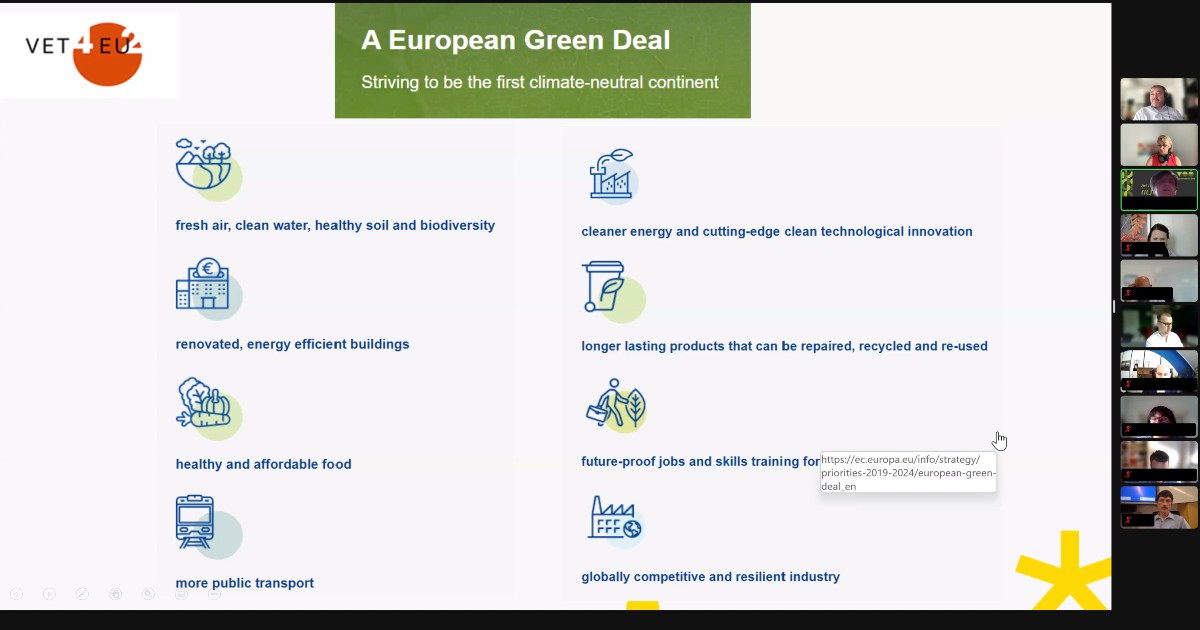Sustainability, investment, empowerment and cooperation were some of the key words used in the closing session of Green, Greener VET event, conducted online in the scope of the 6th Edition of the European Vocational Skills Week, on May 20th, 2022.
With 39 participants coming from all corners of the EU, this session was moderated by Alicia Miklavčič (Chair of VET4EU2 Platform).
The panel of experts was comprised of Mia O’Neaill (Principal and Managing Director of Sykli Environmental School of Finland), Louis Aquilina (Director, Erasmus+ Projects and Mobility Office at MCAST and Coordinator for the UNESCO-UNEVOC Centre, in Malta), Žan Dapčevič (Director of the Higher Vocational College Academia, Maribor), Adam Gajek (EUROCHAMBRES), Giacomo Bosio (Programme assistant for SDGs and Greening TVET initiative, at UNESCO-UNEVOC) and Anna Barieri (DG EMPL).
Based on their experience, they were able to identify possible solutions to the main challenges to VET mentioned in the opening session of the Green, Greener VET event – how to:
Transform mindsets and find solutions to overcome the decrease of students;
Boost teachers’ professional development;
Help VET Providers coping with new technologies to help us turn green.
Experts concluded that investment on digitalisation (including the use of AI, VR and other equipment in training) and explanation of the benefits of VET for the jobs of the future can attract young people to VET.
Investment on human capital is required to foster teachers’ professional development (e.g., provide opportunities for training, peer learning and sharing of best practices in the use of digital tools in training and to foster sustainable learning environments).
Implementation of already existent EU tools and initiatives (e.g., Pact for Skills, EU Alliances for Apprenticeships, Erasmus+ programme) is crucial for promoting cooperation between different stakeholders (VET providers, teachers, students, SMES and other businesses) to take measures for the green transition, including skills forecasting, quality apprenticeships and work-based learning, mobility and coaching. They can also be used by VET providers to implement micro-credentials and foster sustainability in the learning environment.
Green, Greener VET sessions were the stage for fruitful discussions, where possible solutions on how can VET cope with specific challenges for the green transition were provided.
Now it is time to act, collaboratively, for the future and growth of VET!






